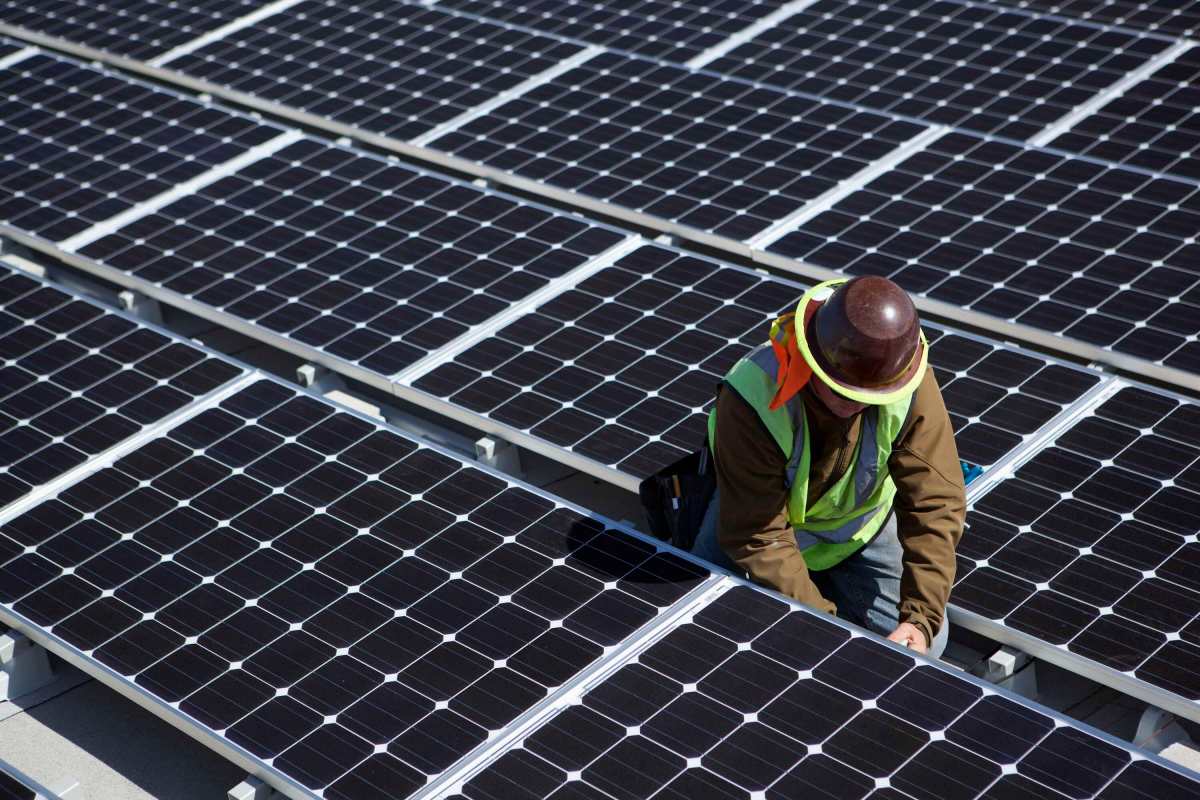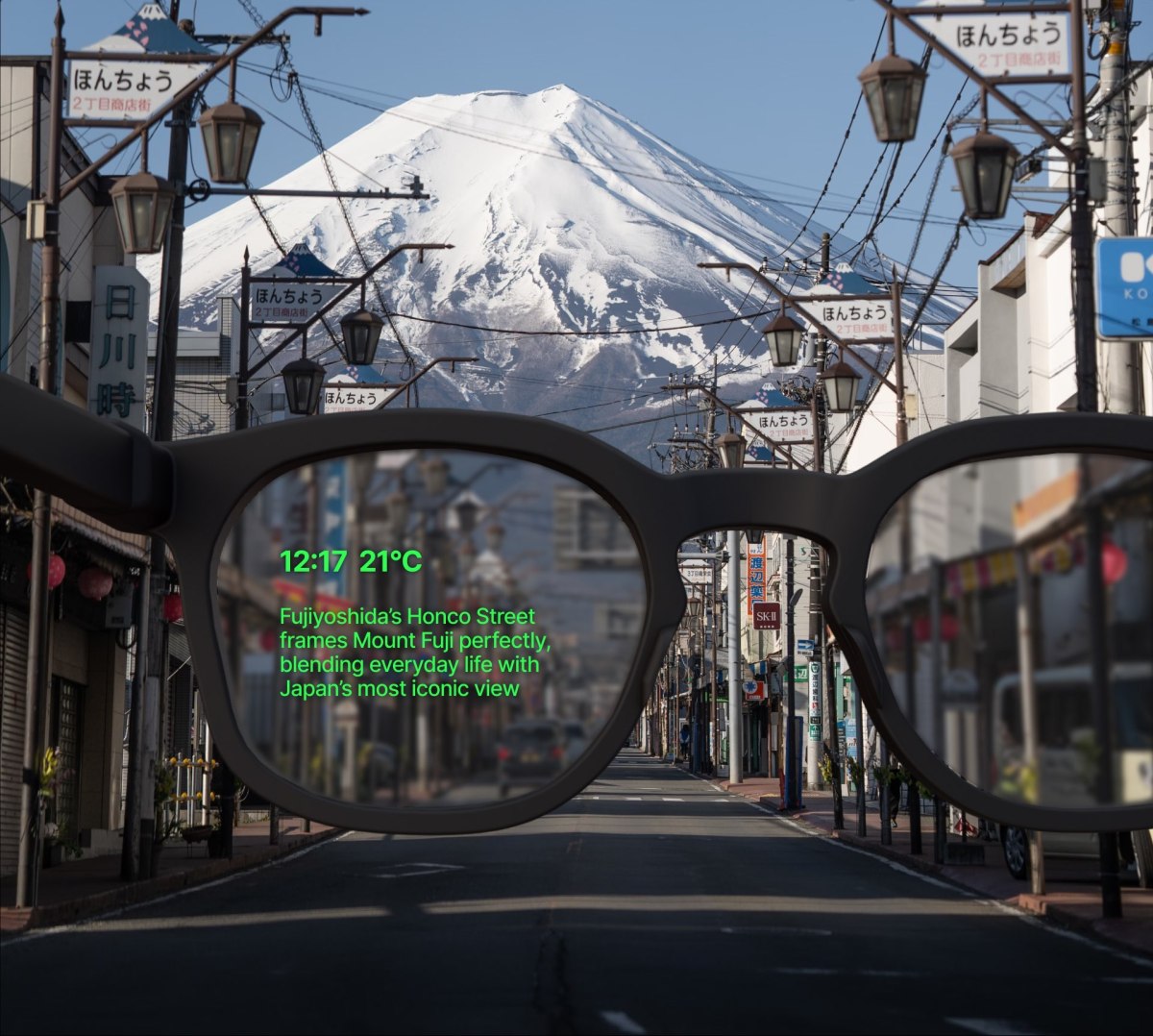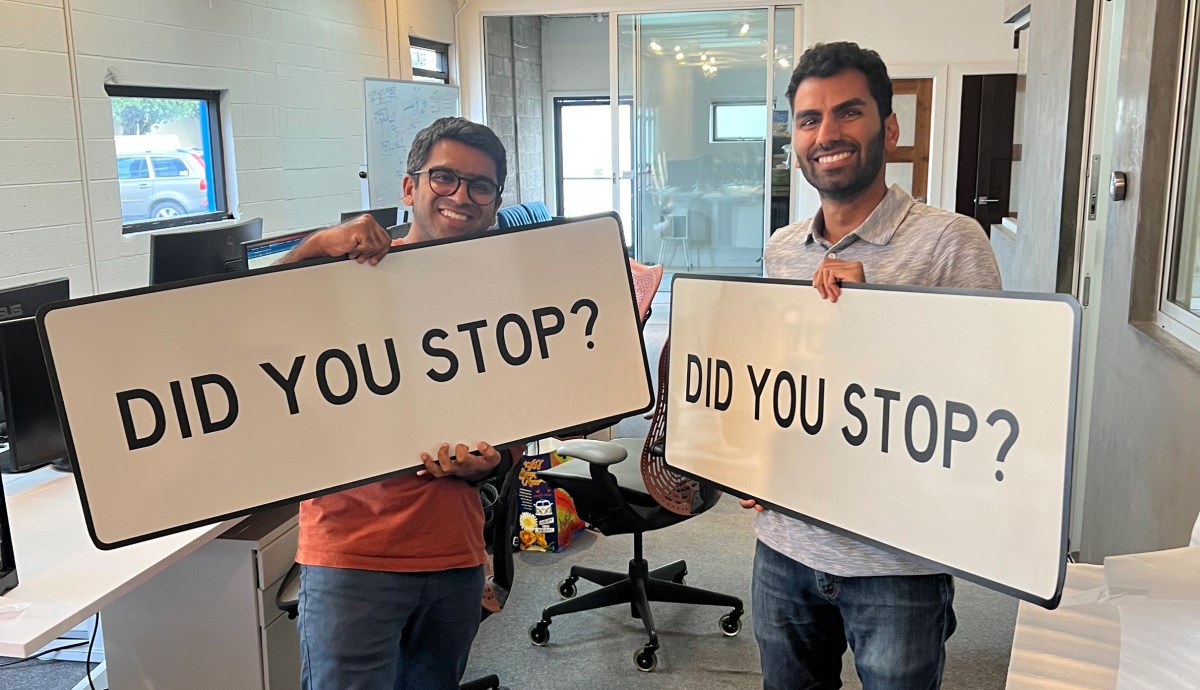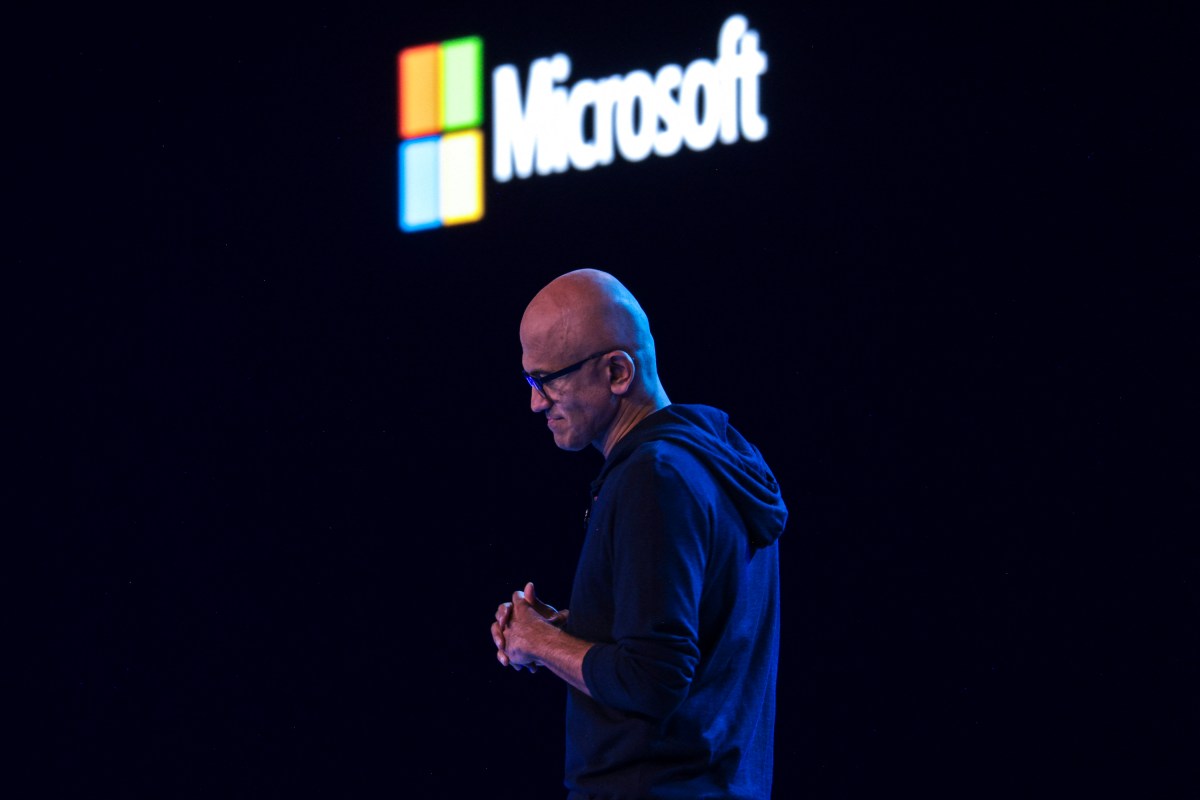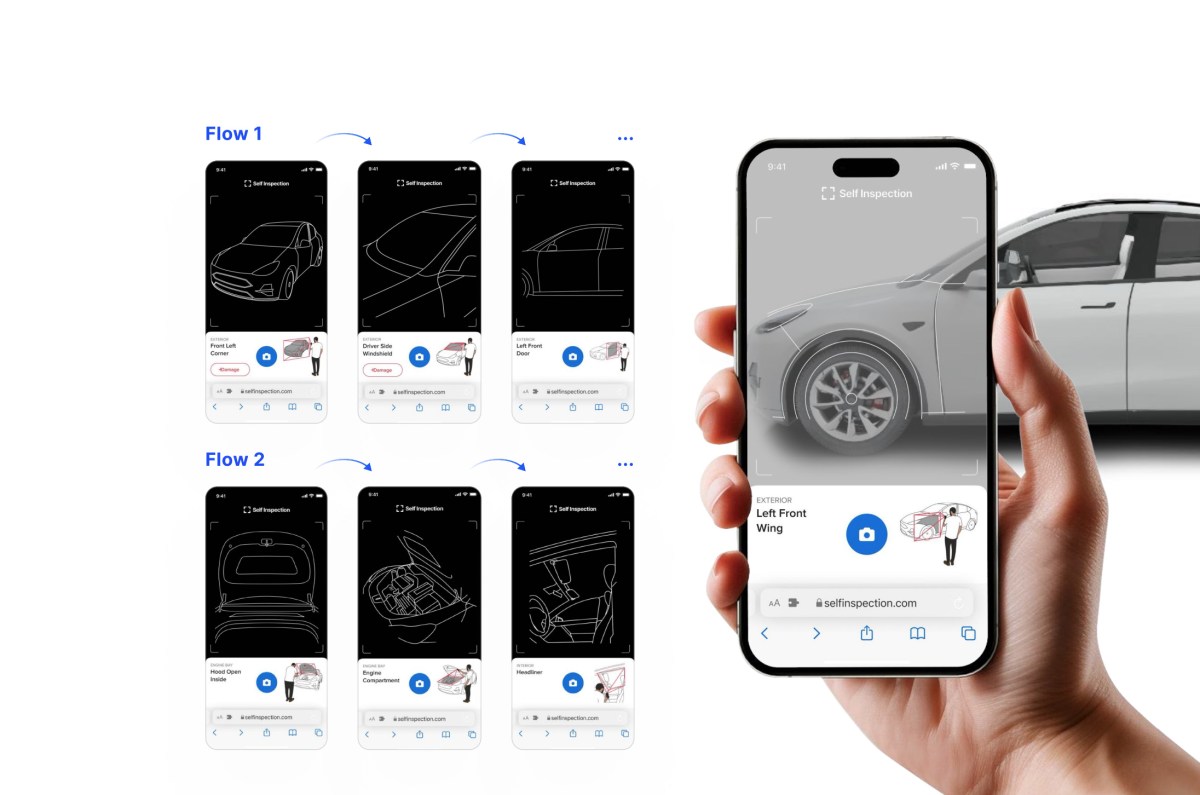
Self Inspection raises $3M seed for its AI-powered vehicle inspections
Sources: https://techcrunch.com/2025/02/07/self-inspection-raises-3m-for-its-ai-powered-vehicle-inspections, techcrunch.com
TL;DR
- Self Inspection, a San Diego startup, secured a $3 million seed round to fund its AI-powered vehicle inspection service. The round was co-led by Costanoa Ventures and DVx Ventures, the firm led by former Tesla president Jon McNeill.
- Westlake Financial joined the round; Avis and CarOffer are customers, with Westlake Financial also a participant in the round.
- The platform uses a smartphone camera (with optional data from a vehicle’s OBD2 port) to detect damage, assess severity, and generate a detailed cost estimate and a thorough PDF inspection report.
- The service integrates into customers’ existing workflows via a smartphone browser (no standalone app) and offers a configurable back-end to tailor inspections for different marketplaces, banks, and fleets.
- Self Inspection aims to streamline operations for auto lenders, dealerships, and rental companies and to accelerate the sales cycle by delivering fast, high-quality inspection reports.
Context and background
The vehicle-inspection market, valued at roughly $30 billion, has attracted attention from a range of startups seeking faster, cheaper, and more reliable processes. Investors are increasingly looking for automation that can improve quality and reliability while reducing manual effort. In this context, Self Inspection presents a platform designed to fit into existing workflows rather than forcing customers into a standalone app, a strategy the company says helps expedite loan and sales cycles. This positioning places it alongside other AI-powered inspection efforts in a space eager for digital transformation. The claims about market opportunity and the need for innovation come from multiple stakeholders, including DVx Ventures’ Karim Bousta, who characterizes the inspection process as ripe for disruption. The article describing these developments notes that the company has been working on its technology since 2021 and has validated its approach with real customers.
What’s new
Self Inspection announced its seed funding round, raising $3 million in a round co-led by Costanoa Ventures and DVx Ventures (the DVx fund run by former Tesla president Jon McNeill). Westlake Financial participated in the round as well, joining a portfolio that already includes Avis and CarOffer (a CarGurus-owned digital wholesaler). The company emphasizes that this capital will support expansion, growth, and scale for its AI-powered inspection service. What’s fueling the technology, according to the company and its CEO Constantine Yaremtso, is a lightweight yet capable AI stack trained on a large dataset of damaged vehicles. The system can quickly identify damage, assess its severity, generate a repair cost estimate, and produce a comprehensive PDF report detailing labor, parts, and steps required for repair. Self Inspection differentiates itself by delivering a report that rivals a body shop’s in-depth documentation, but through a streamlined, digital process. In practice, inspections are designed to be simple to perform: a fleet, marketplace, or lender user can initiate an inspection by sending a link via text or email, and the inspection is completed within a smartphone’s web browser—no standalone app needed. The back-end configurator lets customers drag and drop checkpoints to emphasize specific wear areas or EV-related checks (for example, ensuring a charging cable is accounted for). The company argues this configurability makes the tool adaptable to a variety of use cases and workflows.
Why it matters (impact for developers/enterprises)
The investment and early customer wins underscore a broader trend toward AI-powered auto-inspection tools that fit into existing software ecosystems rather than requiring wholesale process changes. By offering a configurable backend and browser-based inspections, Self Inspection reduces barriers to adoption for lenders, dealerships, and rental fleets seeking faster inspections and better data quality. Industry observers note that a fast, reliable, and auditable inspection workflow can shorten the sales cycle for vehicles, particularly in wholesale and financing contexts. The company positions its product as enabling marketplaces and banks to inspect more efficiently and move vehicles through the pipeline sooner.
Technical details or Implementation
Self Inspection relies on a smartphone-based workflow augmented by optional OBD2 data to enhance its assessments. The AI models are trained on a large dataset of damaged vehicles to detect damage and determine its severity. The system then generates a cost estimate and compiles a detailed PDF report that covers labor requirements, part counts, and repair implications. Unlike some competitors, Self Inspection emphasizes ease of use: users do not need to stand a specific distance from the vehicle to capture images, and the process is not a standalone app. The platform integrates into customers’ existing workflows via a web link sent by text or email, and all inspections are completed through a smartphone’s browser. The tool’s configurability is a key feature: fleets or marketplaces can tailor the inspection checklist to emphasize specific wear areas or add checks for EV-specific items, such as charging cables. The result is a flexible, scalable inspection solution that aims to standardize reporting while allowing for practice-area customization.
Key takeaways
- A $3 million seed round supports scaling of an AI-driven vehicle inspection platform with real-world customer validation.
- The round was co-led by Costanoa Ventures and DVx Ventures; Westlake Financial joined as a participant.
- Early customers include Avis and CarOffer, with Westlake Financial also investing in and using the service.
- The platform uses smartphone capture and optional OBD2 data to detect damage, assess severity, and generate a detailed PDF report with cost estimates.
- Inspections are browser-based, integrated into customers’ workflows, and highly configurable to fit various marketplace and financial use cases.
FAQ
- Q: How does Self Inspection work in practice? A: It uses a smartphone camera, optionally augmented by OBD2 data, to detect damage and severity, generates a cost estimate, and produces a thorough PDF inspection report, all integrated into customers’ workflows via a web link.
- Q: Who are the investors and who are the customers? A: The seed round was co-led by Costanoa Ventures and DVx Ventures, with Westlake Financial participating; customers include Avis and CarOffer, with Westlake Financial participating in the round.
- Q: What makes the platform configurable? A: The back-end configurator allows drag-and-drop customization to prioritize wear areas or add checks (e.g., EV charging cable location), aligning inspections with specific business needs.
- Q: How is the data delivered to users? A: Inspections are delivered as a detailed PDF report accessible through a link sent by text or email and viewed in a smartphone browser.
- Q: How does this fit into the market context? A: The solution targets a $30 billion vehicle inspection market by offering faster, simpler, higher-quality digital inspections that integrate with lenders, dealers, and rental companies’ workflows, potentially accelerating sales cycles.
References
- TechCrunch: Self Inspection raises $3M for its AI-powered vehicle inspections — https://techcrunch.com/2025/02/07/self-inspection-raises-3m-for-its-ai-powered-vehicle-inspections
More news
How one AI startup helps rice farmers battle climate change
Mitti Labs uses AI to measure methane emissions from flooded rice paddies and partners with The Nature Conservancy to expand regenerative, no-burn farming in India, while tracking carbon credits to support farmers.
Meta to add 100MW of solar power from US gear to back SC AI data center
Meta signs a $100 million, 100 MW solar farm deal with Silicon Ranch in South Carolina to power a planned AI data center, with most equipment made in the U.S. Operations expected in 2027.
Harvard dropouts unveil 'always-on' AI smart glasses that listen, record, and transcribe every conversation
Two former Harvard students claim to be building Halo X, discreet smart glasses with an always-on microphone, real-time transcription, and AI-driven prompts — raising questions about privacy, security, and legality.
Perplexity Accused of Scraping Websites That Explicitly Blocked AI Crawlers, Cloudflare Says
Cloudflare says Perplexity ignored robots blocks, masked its crawler identity, and scraped content from sites that asked AI scrapers not to access them. Perplexity disputes the claim.
Obvio’s AI Stop-Sign Cameras Aim to Cut Dangerous Driving While Limiting Surveillance
Obvio raises $22M in Series A to deploy solar-powered, AI-driven stop-sign cameras that detect serious infractions, process footage on-device, and forward verified violations to municipalities—while enforcing strict data retention and sharing limits.
Breakneck data center growth challenges Microsoft’s sustainability goals
Microsoft’s 2025 sustainability report shows emissions rose 23.4% since 2020 due to rapid data center expansion, with Scope 3 driving the majority of the footprint. The 2030 pledge requires cutting emissions by more than half and scaling carbon removal.

